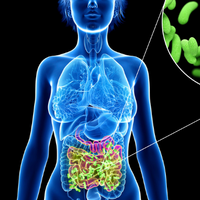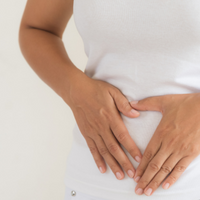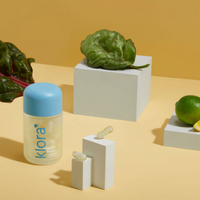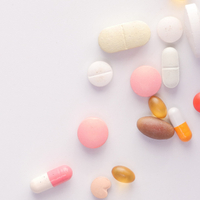Irritable bowel syndrome is a gastrointestinal (GI) disorder that impacts roughly 20% of adults in the United States of America. It is associated with several unpleasant symptoms involving the digestive system. IBS could disrupt your social life so by understanding the causes and symptoms, you can better understand possible treatments. Let's explore the connection between this GI problem and your overall gut health.
Symptoms of Irritable Bowel Syndrome
When you suffer from IBS, you will experience several common problems in the lower digestive tract. Food particles could sit inside the intestines for hours. Abdominal pain is one of the most common symptoms of this disorder. Such pain may be triggered by bowel movements, especially forceful ones that require lots of straining. Constipation is another complication that could be linked to irritable bowel syndrome. Likewise, IBS may cause diarrhea and other frequent urges for bowel movements throughout the day or night. When your gut health is compromised by such a GI disorder, you will also feel bloated in the stomach and intestines. Even when passing gas and relieving yourself in the bathroom, you might still feel some pain and discomfort in the abdomen. Most of the bloating comes from gaseous accumulation during the early and middle stages of digestion. In severe cases, the condition will lead to significant weight loss and rectal bleeding. Forceful contractions by the muscles in your gut may lead to cramping and prolonged discomfort after a bowel movement.
Causes of Irritable Bowel Syndrome
Scientists, doctors and clinicians worldwide haven't yet pinpointed the major causes of IBS. Instead, several factors could potentially increase your risk of developing this GI disorder over the years. As with many chronic conditions, genetics and hereditary factors certainly play a key role in triggering some of the symptoms of the digestive disorder. Some research studies indicate higher risk levels for women compared to men. Irritable bowel syndrome has also been linked to various types of mental and physical stress. Anxiety and depression could increase the overall sensitivity of the digestive tract. Your intestines are lined with an array of highly sensitive receptors that are connected to the central nervous system. When you feel anxious or depressed, the nerves throughout the entire body become irritated and disrupted. If you get excited and enjoy positive emotions, your GI tract might still be upset by the sudden surge of neural signals.
An imbalanced gut microbiome could be another major cause of IBS. Your gut health heavily depends on an optimum level of beneficial bacteria populations that occur naturally. You can't exactly eliminate some of the negative bacteria inside your GI tract. When the gut-friendly bacteria colonies are outnumbered and overwhelmed, your intestines will suffer. The entire digestive process inside the gut will be hindered. Even worse, some of the harmful bacteria could damage the outer linings of the intestines. A leaky gut could further exacerbate the condition of the intestinal layers. When some proteins and other nutrients pass from the gut into the blood, you will feel discomfort, pain and extra sensitivity from the inflammation in the lower abdomen. Stress and anxiety could will also slow down the healing and repair of the inflamed intestinal lining. In some rare instances, bacterial and viral infections could disrupt your bowel movements and overall digestive health. Food poisoning primarily triggers moderate to severe symptoms throughout the GI tract.
Treatment For Irritable Bowel Syndrome
You could effectively manage IBS through a proper combination of diet, lifestyle, medication and other medicinal therapies. By eliminating certain food and drinks from your diet, you can alleviate some of the symptoms of irritable bowel syndrome. For example, some carbohydrates naturally lead to lots of gas during the fermentation process inside your gut. By cutting down on fermentable oligosaccharides, disaccharides and other relevant sugars, you may gain some noticeable benefits in terms of digestion. A professional dietitian or nutritionist could provide a comprehensive list of food items that are packed with a relatively high content of such complex carbs. Eating too much fiber on a frequent basis might also wreak havoc on your GI tract. In particular, insoluble fiber may increase the potential for excessive gas inside the intestines. As the name implies, this type of fiber doesn't readily dissolve inside the GI tract. However, soluble fiber has been proven to provide an array of digestive benefits, including regular bowel movements. You should drink enough water to optimize the effects of dietary fiber on your gut.
Probiotics may help you mitigate some of the symptoms of irritable bowel syndrome. These are microscopic organisms that regulate the natural microbiome inside your gut. The beneficial bacterial populations must have a steady source of food, such as prebiotics. By eating an appropriate amount of prebiotics and probiotics, you could optimize your gut biome. There are plenty of vegetables, herbs and roots that are packed with prebiotics. Likewise, dairy and fermented items are rich in probiotics. If you have lactose intolerance or don't like sour food, you could simply take probiotic supplements with delicious flavors.
If your IBS is mainly triggered by stress, anxiety, depression or other related problems, you should try to improve your mental health. A lack of sleep could certainly intensity such cognitive complications. Psychologists and psychiatrists could provide effective therapy for managing common mental issues that ultimately trigger your IBS. Of course, exercise may provide an abundance of benefits for your gut health. Regular exercise has been shown to optimize bowel regularity in adults of all ages. If you continue to suffer from the disorder on a daily basis, you should consider medication. Primary care doctors and gastroenterologists can prescribe pills for managing constipation, diarrhea and abdominal pain. For instance, lubiprostone and linaclotide are some FDA-approved options for treating the disorder.








0 comments